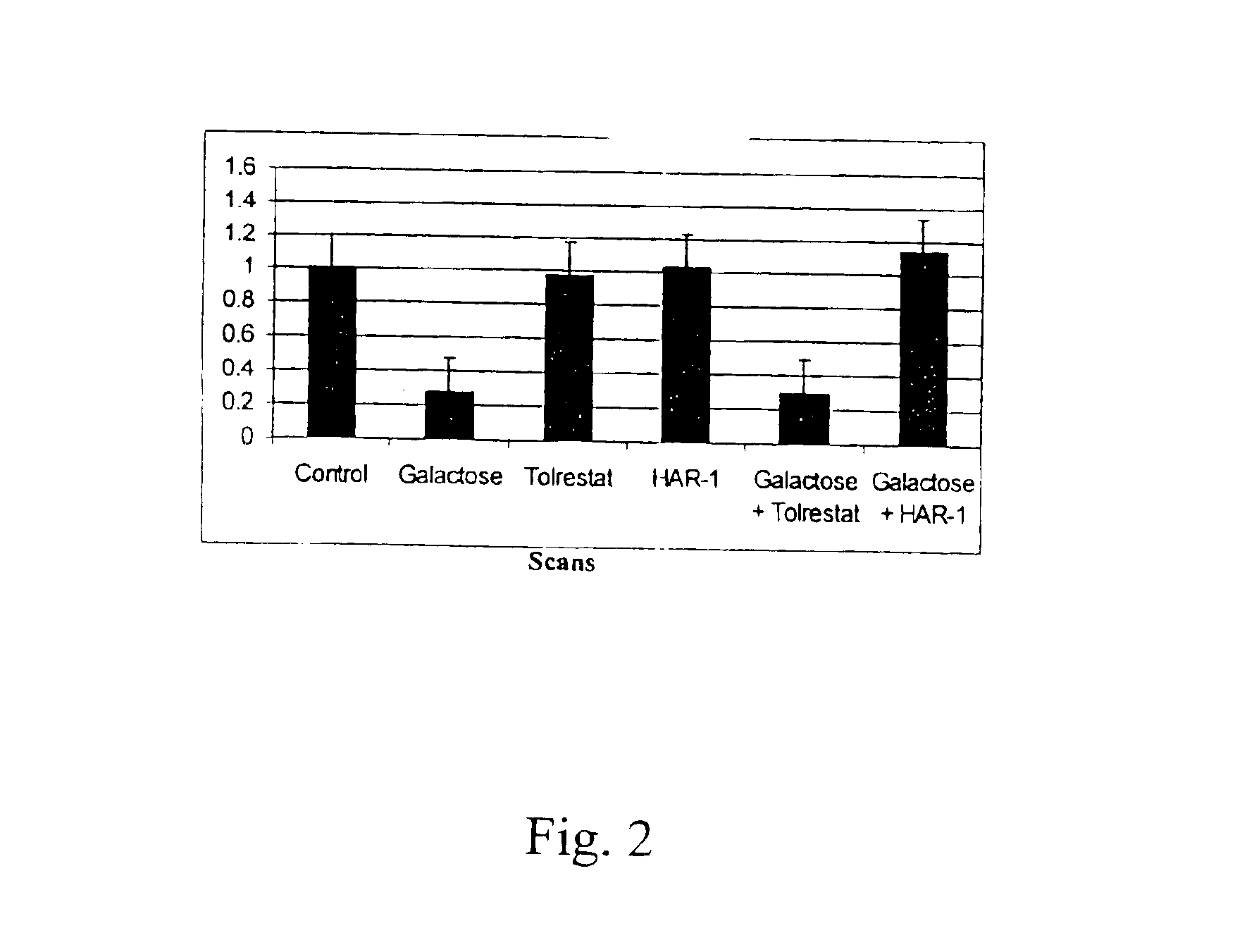Methods of treating cataracts and diabetic retinopathy with tricyclic pyrones
a tricyclic pyrone and cataract technology, applied in heterocyclic compound active ingredients, drug compositions, biocides, etc., can solve the problems of no known pharmaceutical treatment for retinopathy, ineffectiveness of ari's in treating retinopathy, and osmotic damage to cells, so as to facilitate slow-release or timed release, enhance or affect other drug delivery properties, and enhance solubility in a given carrier
- Summary
- Abstract
- Description
- Claims
- Application Information
AI Technical Summary
Benefits of technology
Problems solved by technology
Method used
Image
Examples
Embodiment Construction
Bioactivity Assays
[0108]The activity of the drugs is tested in various ways, including tissue culture assays and assays testing aldose reductase inhibition. For the tissue culture assay, a lens epithelial cell line is grown in galactose with or without the drug. Cells are tested for polyol accumulation by GC / mass spectrometry. Levels of PKC are tested in homogenized cell pellets or in samples of lens, retina or sciatic nerves from treated patients. Tissue is homogenized and tested for PKCγ levels using Western blots. These procedures are described in more detail below.
[0109]Human aldose reductase (AR) was obtained from overexpression of the human AR gene in an E coli system and was purified by column chromatography using a talon metal affinity column and eluted with a gradient mixture of Tris, NaCl buffer and imidazole solution. The human AR inhibition assay was conducted as follows. In a sample cuvette, 25 mM of D-xylose (75 mg / mL) and 0.15 mM of reduced nicotinamide adenine dinucl...
PUM
| Property | Measurement | Unit |
|---|---|---|
| Molar density | aaaaa | aaaaa |
| Molar density | aaaaa | aaaaa |
| Molar density | aaaaa | aaaaa |
Abstract
Description
Claims
Application Information
 Login to View More
Login to View More - R&D
- Intellectual Property
- Life Sciences
- Materials
- Tech Scout
- Unparalleled Data Quality
- Higher Quality Content
- 60% Fewer Hallucinations
Browse by: Latest US Patents, China's latest patents, Technical Efficacy Thesaurus, Application Domain, Technology Topic, Popular Technical Reports.
© 2025 PatSnap. All rights reserved.Legal|Privacy policy|Modern Slavery Act Transparency Statement|Sitemap|About US| Contact US: help@patsnap.com



